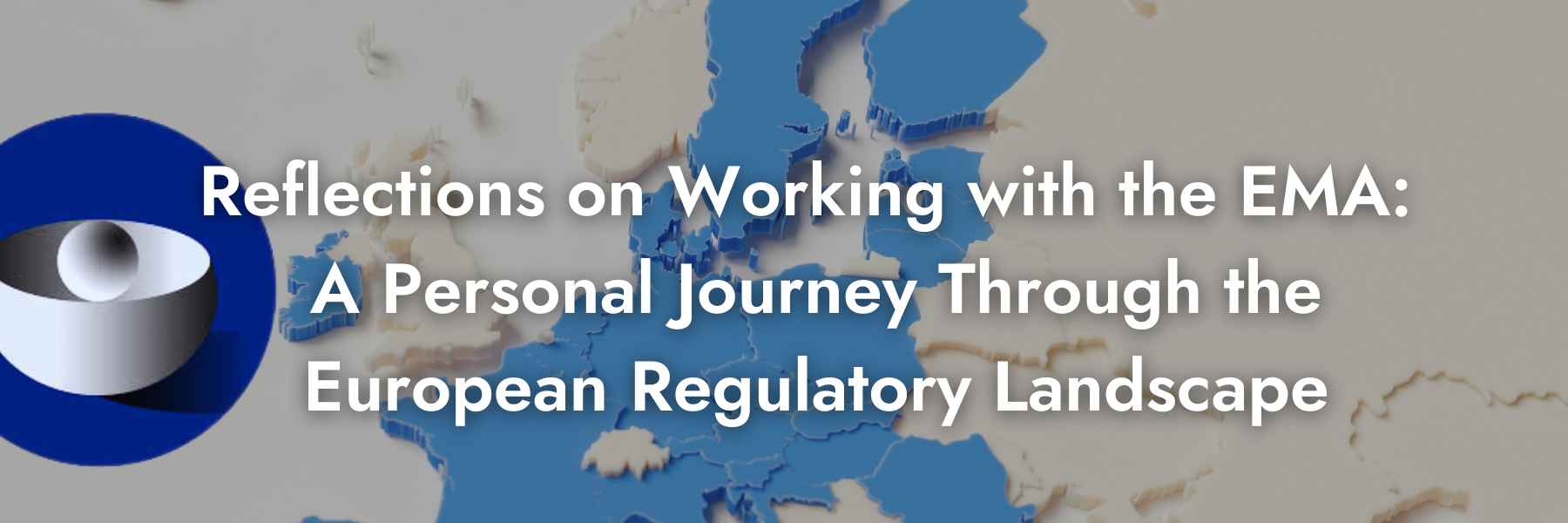Reflections on Working with the EMA: A Personal Journey Through the European Regulatory Affairs Landscape
In 1995, I attended a conference in Paris where a significant announcement was made—the establishment of the European Medicines Agency (EMA). At the time, the vision was ambitious: within three years, all medicinal products would be approved through a centralized procedure, streamlining the process across Europe. Nearly three decades later, while this vision remains only partially realized, the EMA has undoubtedly transformed the regulatory landscape in the European Union.
My journey with the EMA began with the submission and approval of the first product under the centralized procedure—a recombinant human growth hormone. Since then, as the president and founder of a pharmaceutical regulatory affairs consultancy, I have been deeply involved in numerous consultation meetings with the EMA and have worked on the submission and approval of Orphan Medicinal Product Designations (OMPDs) and applications from Small and Medium-sized Enterprises (SMEs). Throughout these experiences, I have found the EMA’s procedures to be exceptionally well-organized, with clearly defined timelines that greatly facilitate strategic planning.
Understanding the EMA’s Role in the European Union
The EMA, established in 1995, was created to unify the approval process for medicines across the European Union (EU). Before its inception, each EU member state had its own regulatory authority, leading to inconsistencies and delays in the availability of medicines. The EMA was designed to address these issues by enforcing rigorous scientific standards and providing a centralized system for the approval of medicines.
The centralized authorization procedure, managed by the EMA, is mandatory for certain categories of medicines, including those targeting rare diseases, HIV, cancer, neurodegenerative disorders, and other serious conditions. This procedure also applies to biotech products, gene therapies, and monoclonal antibodies. For these medicines, a single application to the EMA results in a marketing authorization valid across all EU member states, as well as Iceland, Liechtenstein, and Norway.
For medicines outside the mandatory scope of the centralized procedure, the EMA offers alternative pathways such as the national procedure, decentralized procedure, and mutual-recognition procedure. These options provide flexibility for companies developing products that may not fit the centralized criteria but still require regulatory approval within the EU.
Leveraging EMA’s Scientific Advice and Protocol Assistance
One of the EMA’s most beneficial offerings for startups is access to scientific advice and protocol assistance. These services are particularly useful when existing EU guidelines or Pharmacopoeia monographs lack the specificity needed for a company’s unique product. If a company opts to deviate from established guidelines, it can seek tailored scientific advice from the EMA to ensure its development plan remains viable.
Startups can also request advice on the relevance of specific guidelines to their products, which is crucial when harmonizing global development strategies that align with both FDA and EMA requirements. This approach not only streamlines the approval process across multiple regions but also reduces potential regulatory hurdles.
One of the most valuable resources offered by the EMA is the Innovation Task Force (ITF), which provides scientific advice during the early stages of product development. Unlike traditional regulatory guidance, the ITF’s advice is focused on scientific challenges, offering startups a unique opportunity to refine their development strategies at no cost. This early-stage support can be a game-changer for startups navigating the complex and competitive landscape of the European market.
Navigating the Procedures for Scientific Advice
The EMA’s procedures for scientific advice and protocol assistance are designed to be both flexible and responsive to the specific needs of each company. The type of procedure is determined on a case-by-case basis, with a standard timetable of 70 days, although this can be shortened to 40 days, depending on the nature of the request.
For protocol assistance, the EMA often invites sponsors to participate in discussion meetings, fostering a collaborative environment that ensures the development plan aligns with regulatory expectations. For scientific advice, companies may express a preference for a discussion meeting when submitting their initial request, though the final decision rests with the Scientific Advice Working Party (SAWP).
Conclusion: The EMA as a Strategic Partner for Startups
For biomedical startups aiming to enter the European market, the EMA is more than just a regulatory body—it is a strategic partner. Understanding and leveraging the EMA’s resources can significantly enhance a startup’s chances of success. The EMA’s centralized procedures, scientific advice, and early-stage support through the Innovation Task Force offer invaluable guidance that can help startups navigate the complex regulatory landscape of the EU. By engaging with the EMA, startups can bring their innovative products to market more efficiently, ultimately benefiting patients across Europe and beyond.


Subscribe Now to the Bio-Startup Standard
Notify me for the next issue!



